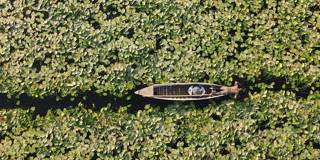As world leaders chart a course to reignite global growth, they must not ignore the relationship between nature and the economy. In the years ahead, preserving biodiversity and ecosystems will be the key to unlocking new opportunities, particularly in developing countries.
MONTREAL – The mega-challenges engulfing the world today – from COVID-19 to climate change – have highlighted the interdependencies between people, planet, and the economy. As we chart a course to reignite global growth and drive green, resilient, and inclusive development, we must not ignore these interlinkages. Nature – meaning biodiversity and the services that healthy ecosystems provide – is central to this endeavor, especially in developing countries, where poor people in rural areas tend to rely heavily on nature’s services and are the most vulnerable to its depletion.

MONTREAL – The mega-challenges engulfing the world today – from COVID-19 to climate change – have highlighted the interdependencies between people, planet, and the economy. As we chart a course to reignite global growth and drive green, resilient, and inclusive development, we must not ignore these interlinkages. Nature – meaning biodiversity and the services that healthy ecosystems provide – is central to this endeavor, especially in developing countries, where poor people in rural areas tend to rely heavily on nature’s services and are the most vulnerable to its depletion.